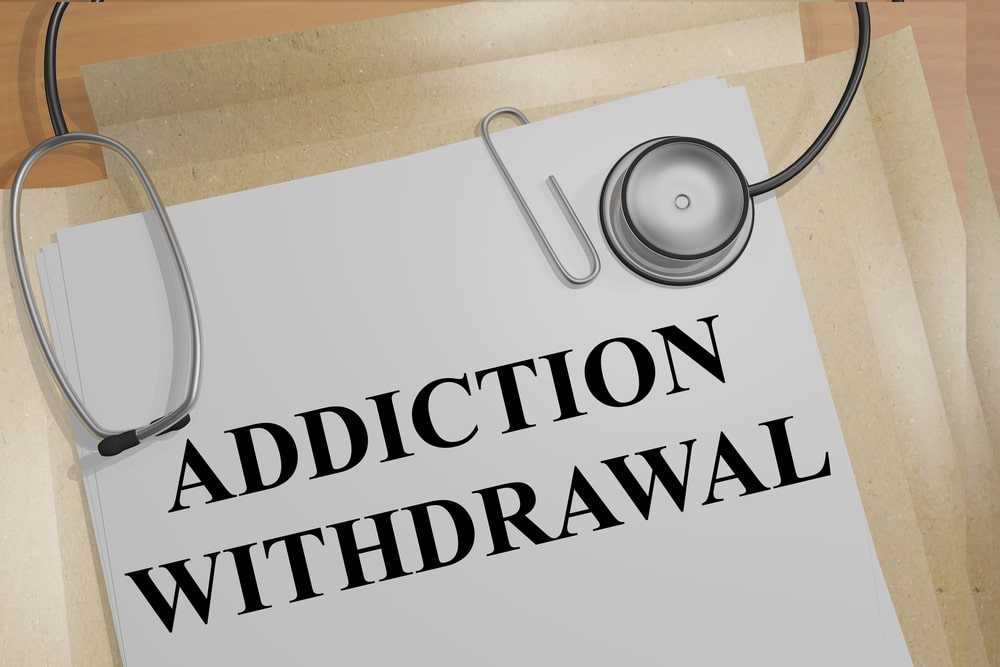Alcohol is a legally and socially acceptable substance that millions of people enjoy every day without any adverse effects. But unfortunately, one in eight U.S. adults struggles with alcohol dependence. Alcohol dependence is defined as the inability to quit drinking, while alcohol abuse means someone drinks too much in a single sitting. Many people who abuse alcohol do not meet the criteria for alcohol dependence. However, those who struggle with alcohol dependence have a difficult time quitting on their own. Also, a sudden cessation of long-term alcohol dependence can trigger deadly seizures, coma, and death in vulnerable individuals.
For those who wish to break free from the cycle of alcohol addiction, it is imperative that they seek help from a medical detox center. The following article will explore the timeline and the process for alcohol detox and withdrawals.
What are the signs and symptoms of alcohol withdrawal?
When someone has become dependent on a substance, they are unable to function without a baseline of the substance in their body. Even though many addicts want to quit, they are physically unable to do so without outside help and intervention. Furthermore, quitting some drugs, and quitting alcohol, cold-turkey is potentially dangerous. Withdrawal symptoms can also be incredibly painful and distressing for the person going through them and for their loved ones to witness. An alcohol detox and rehab facility is designed to help people withdraw safely while under the supervision of trained medical professionals. The signs and symptoms of alcohol withdrawal are as follows:

- Anxiety
- Depression
- Fatigue
- Irritability
- Shakiness
- Emotional lability
- Nightmares and other sleep disturbances
- Difficulty concentrating
- Cold, clammy skin
- Headaches
- Problems eating
- Stomach upset
- Pale skin
- Rapid heart rate
The most severe and deadly form of withdrawal is called delirium tremens. Delirium tremens can happen weeks after cessation, making it an unpredictable health complication. Signs and symptoms include extreme agitation, confusion, fever, hallucinations, and seizures which can lead to coma and death.
What is the timeline and withdrawal process for alcohol dependence?
In most cases, mild withdrawal symptoms will start to manifest within eight hours of the last drink. Rarely, withdrawal symptoms won’t begin for several days. For most patients who enter detox for alcohol withdrawal, symptoms will peak in intensity within 24 to 72 hours. After the first week, symptoms start to subside. Sometimes, withdrawal symptoms can linger for weeks after the last drink. Also, delirium tremens can happen after physical withdrawal symptoms have peaked, which makes it even more imperative for people to enter a facility that guarantees medical supervision.
Also, some people will experience prolonged, emotional and cognitive withdrawal symptoms. Depression and anxiety are the most common. Also, long-term, heavy drinkers can experience lingering issues with memory and cognition long after cessation.
But a medical detox center and rehab facility can create aftercare plans for their patients to help them cope with lingering symptoms and other issues related to alcohol dependence. Also, a medical detox facility can lessen the severity of the withdrawal process. Physicians are available to administer safe medications to alleviate the patient’s physical and emotional distress during detox.
What are the success and failure rates for alcohol withdrawal, detox, and sobriety?
Alcohol and drug addiction are complex health issues that require medical treatment. The disease of addiction can be compared to other chronic diseases, such as hypertension, or diabetes. Health issues like these require ongoing treatment, and people who suffer from them often relapse and need medication adjustments and the like. The same concept applies to addiction. It is a chronic health issue that requires ongoing treatment and intervention because relapse is a likely possibility. Relapse is more of a part of the journey to sobriety, making it a feature of the detox process and not a bug.
Recent studies indicate that relapse rates decrease with treatment and interventions for alcohol addiction. Those who receive short-term therapy for alcohol addiction are twice as likely to be successful than those who do not seek any treatment. Also, those who can maintain even one year of sobriety have higher chances of obtaining long-term sobriety and success from alcohol dependence. For those who enter recovery for the first time, a third can achieve lifelong sobriety.
Who is most likely to detox from alcohol successfully?
People who are college educated are the most likely to seek treatment for a drinking problem. But once in rehab, a college degree does not automatically guarantee a higher success rate. Those who have a strong support network, including family and friends, have higher chances of success. Married couples who both enter rehab and also partake in behavioral counseling have higher rates of success than unmarried people. People who do not suffer from a comorbid disorder have higher chances of success as well.
The biggest obstacle to successfully detoxing from alcohol is an untreated comorbid disorder. For these patients, it is imperative that they receive holistic and integrated care when they enter a detox program. Failing to address and treat a comorbid condition makes it difficult for someone to achieve sobriety. Treating alcohol dependence and the comorbid condition at the same time increases the chances of success.
Other factors that improve the chances of success include the continuation of after-treatment programs. These can consist of 12-step meetings, one-on-one, group, and family therapy. For patients with a comorbid disorder, integrated aftercare programs will be the most beneficial to their continued success from alcohol addiction.
Relapse prevention planning also gives people a solid foundation for continued abstinence from alcohol. These ongoing maintenance techniques also give people the coping skills they need to prevent a relapse and identify triggers that may lead to a relapse. Also, these plans give people the tools they need to get help if they relapse quickly.
Are You At Risk for Alcohol Withdrawal Symptoms?
A 2020 publication by the National Center for Biotechnology (NCBI) reviewed the cause of alcohol addiction, described strategies for decreasing dependency, and listed treatment options. It also described strategies to improve outcomes for treatment outcomes. Symptoms range in severity from mild tremors to life-threatening seizures.
Delirium Tremens Raises Risk
Withdrawal symptoms start when individuals stop or significantly lower their alcohol intake after continued use. The most serious complication, delirium tremens (DT), is the quick onset of confusion that occurs around three days after the last drink and continues for a few days. Individuals who develop delirium tremens have a mortality rate of 1% to 5%.
Signs of DTs may include visual hallucinations, high blood pressure, hyperthermia, agitation, fast heartbeat, and heavy sweating. They can last up to seven days after the last alcohol is ingested and sometimes continue for even longer. Approximately 40% of emergency room patients meet the DSM-IV criteria for alcohol use disorder (AUD). Almost 83% of ER patients with trauma were male, and 43% were over 55 years old. Over half of trauma patients show symptoms of alcohol withdrawal, and 24% developed delirium tremens. Almost 15% of patients who have DTs die if they don’t get help.
Alcohol Affects the Nervous System
Certain problems develop in the body as a result of alcohol addiction. Gamma-aminobutyric acid (GABA) is a neurotransmitter that occurs naturally in the brain and carries messages back and forth between cells. It blocks specific brain signals and calms the nervous system. Because GABA binds to ethanol, the main ingredient in alcohol, it depresses the central nervous system. Ethanol also attaches itself to glutamate, an amino acid that excites the nervous system, and that depresses the brain even more.
Minor signs of withdrawal can start within six hours of the last drink. If they don’t get worse in the next 24 to 48 hours, there is a good chance of recovery. Symptoms may vary, however, from patient to patient and with the amount of ethanol ingested. The severity of symptoms are usually more important than the volume of alcohol ingested. Medical supervision and close attention to medical history usually create a better outcome. Symptoms resemble those of withdrawal from medications like sedatives and opioids, and they’re even more deadly if alcohol and drugs are taken at the same time.
Physical Complications of Alcohol Withdrawal
Besides seizures and coma, individuals with alcohol addiction or withdrawal are at risk for related physical conditions, including these:

Although patients with mild addiction may be able to handle alcohol detox in an outpatient setting, those with these risk factors should consider around-the-clock medical supervision:
Southern California Rehab Centers
If you’re looking for a Southern California rehab after your alcohol detox and withdrawal, our experienced team can help. Contact us today for more information.
Updated March 31, 2021
The facilities at Mission Harbor are staffed with trained experts to best assist patients with their mental health issues. We are capable of dealing with any and all cases with a licensed staff, equipment, and approved techniques. Our mission is to help those who want to help themselves, and we support your decision in seeking help.
Get Help Now
Alcohol addiction is extremely difficult to overcome on your own.. Seek specialized help and let professionals guide you in your recovery.

